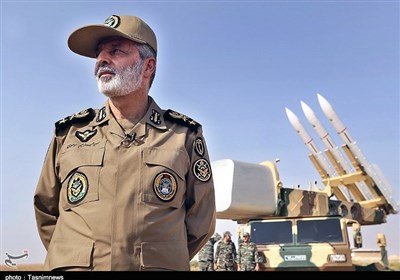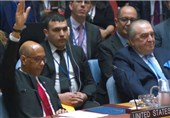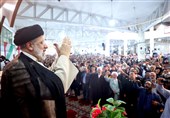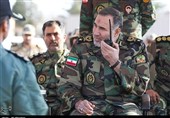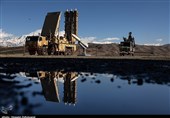Commander Expects US, Europe to Show Goodwill in N. Talks
TEHRAN (Tasnim) – As Iran and six major world powers signed an interim deal on Tehran’s nuclear program in Switzerland last Sunday, a senior Iranian military commander called on the western sides to prove their goodwill in the next round of negotiations.
Deputy Chief of Staff of Iranian Armed Forces Brigadier General Masoud Jazayeri on Saturday called upon western officials to refrain from taking arrogant stances in the nuclear negotiations with Iran.
“In the next round of negotiations, the US and Europe should prove their goodwill in interactions with Iran,” the commander said in a military gathering in Iran’s northern city of Sari today.
“The US administration’s arrogant attitude has added to the public hatred in the world (towards the US),” Jazayeri added.
Iran and the G5+1 (the five permanent UN Security Council members plus Germany) struck a six-month deal after three rounds of intensive talks in the Swiss city of Geneva on November 24, with the aim of bringing a decade-long dispute over Tehran’s peaceful nuclear activities to an end.
The deal is intended to allow time to negotiate a comprehensive agreement on the nuclear program.
Another top IRGC commander has said that western governments are not trustworthy, a top IRGC commander said, and cautioned that the West’s refusal to honor its commitments regarding the Geneva nuclear deal with Iran would unravel an accord that crowned years of diplomacy.
“Historical experiences demonstrate that westerners are not trustworthy, and that they do not honor their commitments,” The Islamic Revolution Guards Corps (IRGC) Lieutenant Commander Brigadier General Hossein Salami told the Tasnim News Agency on Saturday.
The IRGC commander further made it clear that Iran will retaliate in case the western side fails to fulfill its promises defined in the deal. “This is clear and obvious that if they do not fulfill their commitments, we will not do that either,” Brigadier General Salami explained.
In relevant remarks on November 24, Iran’s Foreign Minister Mohammad Javad Zarif stressed that if any new sanctions are imposed against Iran by the West, the nuclear accord will “end” in failure.
“If there are new sanctions, then there is no deal. It’s very clear. End of the deal. Because of the inability of one party to maintain their side of the bargain,” Zarif said in an interview with NBC News.
The top Iranian diplomat had also called on all negotiating parties in nuclear talks with Tehran to seize the opportunity brought by the landmark deal signed in Geneva, and added the US has to restore the confidence of the Iranian nation.
“I think the West, particularly the US, needs to do a lot to at least partially restore confidence, the confidence of the Iranian people,” he said in an interview with NBC News at the time.
While the nuclear deal between Iran and the major world powers is widely seen as a historic accord, some US lawmakers have called for new sanctions on Iran, saying that greater pressure could force Iran to yield more.
But US President Barack Obama has called that unrealistic, saying new sanctions could derail any chance for diplomacy to succeed. Washington and the other five countries negotiating with Iran have pledged not to impose new nuclear-related sanctions over the next six months, so long as Iran sticks to its side of the deal.


